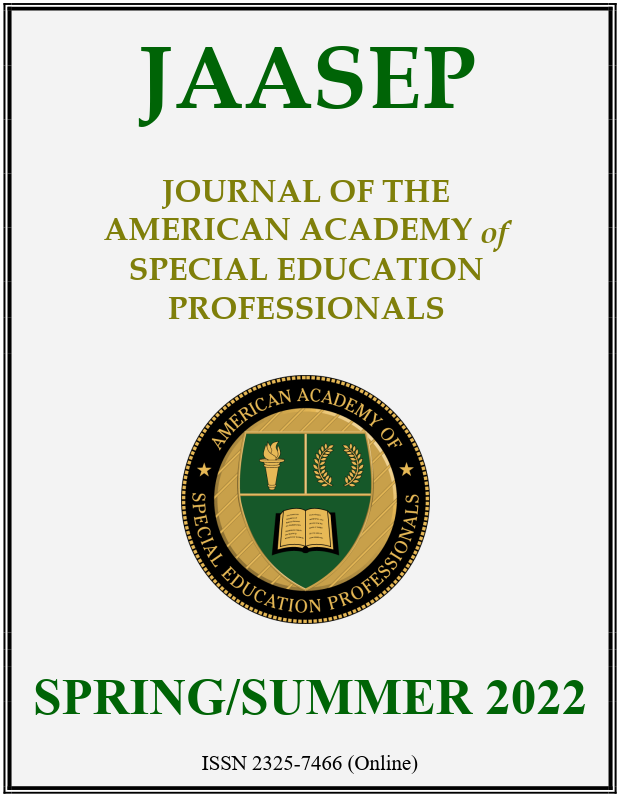Understanding How Individuals Overcome Their Dyslexia: Struggles, Turning Points in Life, and Advice
Burden, R. & Burdett, J. (2005). Factors associated with successful learning in pupils with dyslexia: A motivational analysis. British Journal of Special Education, 32(2), 100-104. DOI: https://doi.org/10.1111/j.0952-3383.2005.00378.x
Burden, R. (2008). Is dyslexia necessarily associated with negative feelings of self‐worth? A review and implications for future research. Dyslexia, 14(3), 188-196. DOI: https://doi.org/10.1002/dys.371
Burden, R., & Burdett, J. (2007). What’s in a name? Students with dyslexia: their use of metaphor in making sense of their disability. British Journal of Special Education, 34(2), 77–82. DOI: https://doi.org/10.1111/j.1467-8578.2007.00459.x
Cockcroft, K., & Hartgill, M. (2004). Focusing on the abilities in learning disabilities: Dyslexia and creativity. Education as Change, 8(1), 61-79. DOI: https://doi.org/10.1080/16823200409487081
Creswell, J. W. & Guetterman, T. C. (2018). Educational research: Planning, conducting, and evaluating quantitative and qualitative research. Pearson.
Fink, R. P. (2002). Successful careers: The secrets of adults with dyslexia. Career Planning and Adult Development, 18(1), 118-135.
Gibson, S. & Kendall, L. (2010). Stories from school: Dyslexia and learners' voices on factors impacting on achievement. Support for Learning, 25(4), 187-193. DOI: https://doi.org/10.1111/j.1467-9604.2010.01465.x
Glazzard, J. (2010). The impact of dyslexia on pupils’ self-esteem. Support for Learning, 25(2), 63-69. DOI: https://doi.org/10.1111/j.1467-9604.2010.01442.x
Hulme, C. & Snowling, M. J. (2016). Reading disorders and dyslexia. Current Opinion in Pediatrics, 28(6), 731-735. DOI: https://doi.org/10.1097/MOP.0000000000000411
Humphrey, H. (2002). Teacher and pupil ratings of self-esteem in developmental dyslexia. British Journal of Special Education, 29(1), 29-36. DOI: https://doi.org/10.1111/1467-8527.00234
Ingesson, S. G. (2007). Growing up with dyslexia: Interviews with teenagers and young adults. School Psychology International, 28(5), 574-591. DOI: https://doi.org/10.1177/0143034307085659
International Dyslexia Association (2020). About dyslexia. Retrieved from https://dyslexiaida.org/dyslexia-at-a-glance/
Kirwan, B., & Leather, C. (2011). Students’ voices: A report of the student view of dyslexia study skills tuition. Support for Learning, 36(1), 33-41. DOI: https://doi.org/10.1111/j.1467-9604.2010.01472.x
Kormos, J., Sarkadi, A., & Csizer, K. (2009). The language learning experiences of students with dyslexia: Lessons from an interview study. Innovation in Language Learning and Teaching, 3(2), 115-130. DOI: https://doi.org/10.1080/17501220802638306
Nalavany, B. A., Carawan, L. W., & Rennick, R. A. (2011). Psychosocial experiences with confirmed and self-identified dyslexia: A participant-driven concept map of adult perspectives. Journal of Learning Disabilities, 44(1), 63–79. DOI: https://doi.org/10.1177/0022219410374237
National Center on Improving Literacy (2019). State of dyslexia: Explore dyslexia legislation and related initiatives in the United States of America. Retrieved from https://improvingliteracy.org/state-of-dyslexia
Riddick, B. (2000). An examination of the relationship between labeling and stigmatization with special reference to dyslexia. Disability & Society, 15(4), 653. DOI: https://doi.org/10.1080/09687590050058233
Shaywitz, S. & Shaywitz, J. (2020). Overcoming dyslexia (2nd ed.). Alfred A. Knopf, Inc.
Singer, E. S. (2008). Coping with academic failure, a study of Dutch children with dyslexia. Dyslexia, 14(4), 314–333. DOI: https://doi.org/10.1002/dys.352
Soni, A. (2017). Students’ experiences of academic success with dyslexia: A call for alternative intervention. Support for Learning, 32(4), 387-405. DOI: https://doi.org/10.1111/1467-9604.12182
The Yale Center for Dyslexia and Creativity (2020). What is dyslexia? Retrieved from https://dyslexia.yale.edu/dyslexia/what-is-dyslexia/
Understood.org (2020). Personal stories. Retrieved from https://www.understood.org/pages/en/learning-thinking-differences/personal-stories/
Washburn, E. K., Mulcahy, C. A., Musante, G., & Joshi, R. M. (2017). Novice teachers’ knowledge of reading-related disabilities and dyslexia. Learning Disabilities, A Contemporary Journal, 15(2), 169-191.
Downloads
Article Information
- Article Type Articles
- Submitted May 2, 2022
- Published June 15, 2022
- Issue Spring/Summer 2022
- Section Articles
